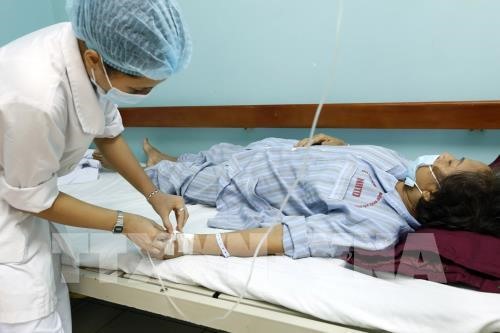 Society
Society

Electronic disease surveillance system inefficient due to poor reporting
 |
| A patient with dengue being treated at a hospital in Hà Nội. — VNA/VNS Photo Dương Ngọc |
HCM CITY— All hospitals in the country are responsible for reporting about patients with infectious diseases through an electronic surveillance system to enable preventive health officials to take timely preventive action against their spread, but many hospitals fail to report accurately.
Preventive health officials raised the issue at a conference on dengue fever surveillance in the south held in HCM City late last week.
Dr Quách Hoàng Mỹ, head of the infectious disease control division at the Bình Dương Province Preventive Health Centre, said the incidence of dengue fever in the province reported through the system was double the number of last year.
However, the actual number of patients was not that high since in many cases a single patient was reported by multiple hospitals.
Besides, many dengue patients, especially migrant workers, did not know their own address meaning hospital staff could not report addresses, he said.
This affected the plan of going to patients’ neighbourhoods to carry out preventive methods in a timely fashion, he added.
An official from the Bến Tre Province Preventive Health Centre said several hospitals in the province had provided wrong information: for instance, a patient who tested negative for dengue has been reported into the system as a patient.
The opposite too had happened, with a patient reported as testing negative, he added.
An official from the Tiền Giang Province Preventive Health Centre said many hospitals still thought that providing information about patients with infectious diseases through the electronic surveillance system was not their responsibility.
"They do not spend time to update this information, and are sometimes late," he said.
Dr Phùng Đức Nhật, deputy head of the Institute of Hygiene and Public Health, said it was vital to provide adequate information about patients with infectious diseases through the system.
This data would help set up a plan to forecast and an action programme against this disease, he said.
Shortcomings in the system would be addressed, he added.
Some officials called for more training for hospital staff to improve their efficiency in reporting. —VNS




